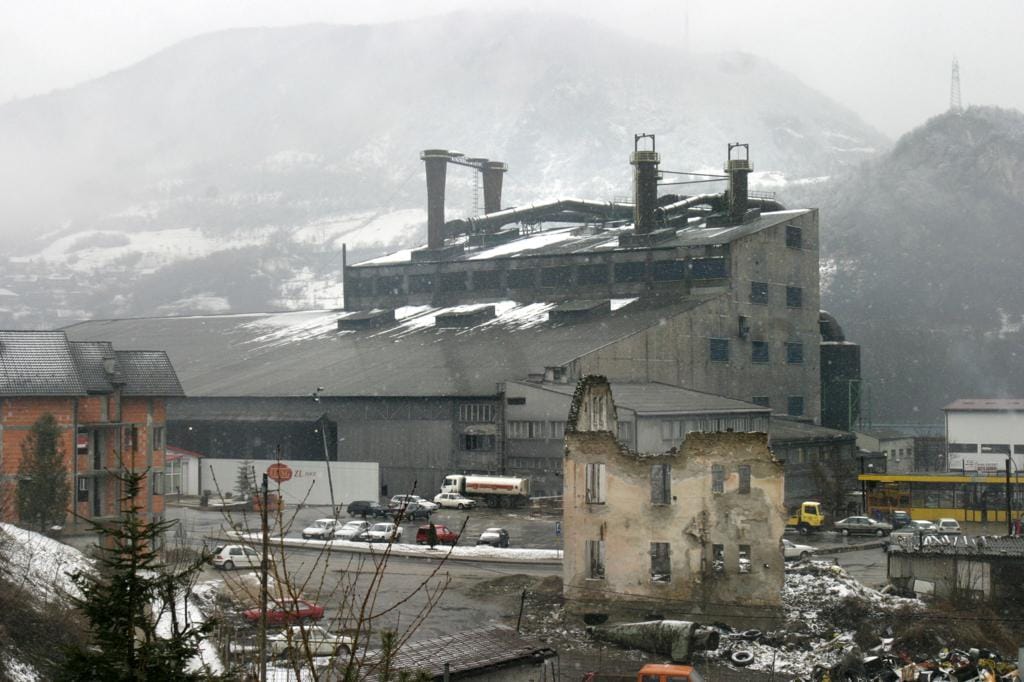A decade-long battle over who will control the Jajce-based Elektrobosna silicon alloy factory took another twist on March 20 when a majority of the shareholders declared they wanted to rid themselves of all foreign investors. In addition, they are seeking the return of three small furnaces at the factory operated since 2004 by the Italian company Metalleghe.
There are five furnaces at the factory. Metalleghe has been operating Furnaces 1,2 and 3. The much larger Furnaces 4 and 5 have been idle for several months due to a tangle of ownerships and subsidiary companies that have driven a once-profitable company toward a bankruptcy auction still scheduled for mid-April.
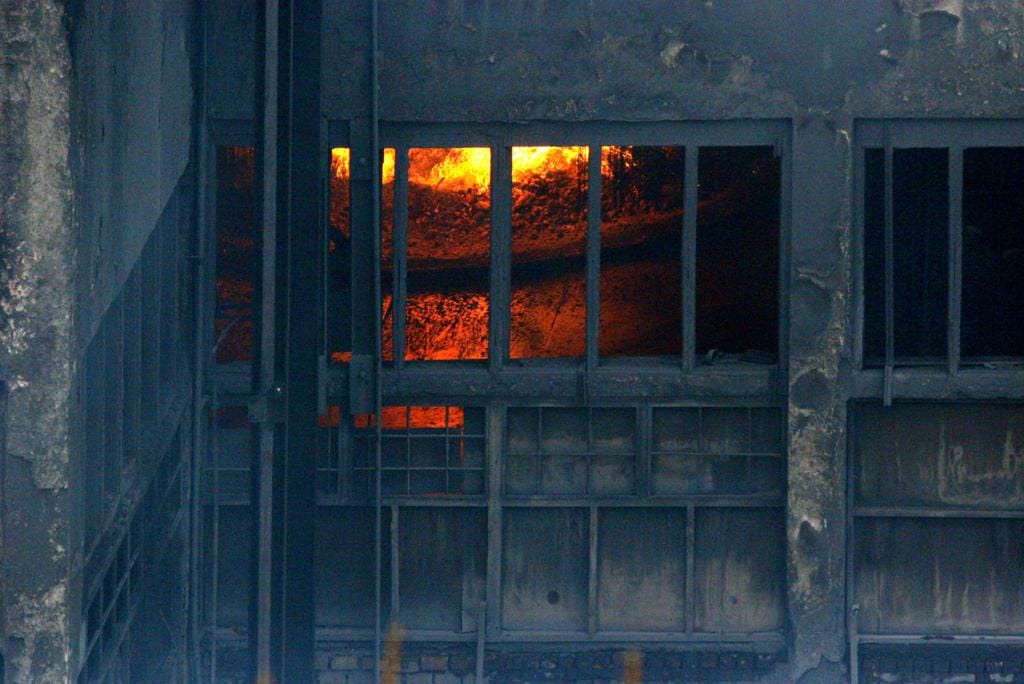
Meanwhile, about 100 workers showed up last week to prepare to restart production at Furnaces 4 and 5 in a deal worked out by the current management supported by the foreign investors and major debtors, including Elektropriveda Herceg Bosna and Hypo Alpe Adria Bank.
The shareholders decided that all assets which Elektrobosna had transferred to three subsidiary companies named Elektrobosna-N, Elbokomerc and Elektrobosna Zaks should be returned. The three subsidiaries were formed as joint ventures with New East Co Ltd of London, Pre Pen of Croatia and Gumiplast Zaks of Croatia, respectively. The shareholders also said that Metalleghe should relinquish control of their three furnaces because Elektrobosna-N sold them to the Italian company without prior approval of a majority of the shareholders.
The shareholders claim the foreign partners did not meet their financial obligations. Representatives from New East and Elbokomerc voted against the decision.
“We have finally put an end to a long period of pillaging, ” said Muhamed Mačak, one of Elektrobosna’s current majority owners. “We’ll wait to hear from the three subsidiary companies. The whole case might end up in court.” Shareholders who wish to fight the decision have 30 days to appeal to the shareholder assembly.
Mačak said he did not want to address the restart of operations because he was not aware management had taken that step.
Contacted at his office in Monzon, Italy, a Metalleghe manager, Fernando Nantron, said he had not yet been contacted by the shareholders, and did not know that the furnaces may have been sold without shareholder permission. Metalleghe has already transferred four million KM of the eight million KM it agreed to pay for the three furnaces. ‘If we get our money back, no problem’ Nantron said of the possible return of the furnaces.
Municipal officials say the three operating furnaces are valued at 11 million KM. Furnaces 4 and 5 together are worth 9.7 million KM, according to an evaluation given to the municipal court.
The struggle over the assets of Elektrobosna began in earnest in 1997 at a lavish ceremony marking the company’s 100th anniversary. Zlatan Ištvanić, company director at the time, accompanied by two businessmen, Zvonko Matijaš and Milorad Škrbić, announced the restart of full-scale operations for the first time since before the war.
Elektrobosna had long prospered as a cheap source of silicon metals for Western European manufacturers. The material is used to improve the strength and quality of iron and steel products, and the company once sold 25,000 tons annually. Elektrobosna was a industrial powerhouse, employing 3000 and accounting for 14% of the total export sales of the former Yugoslavian Republic of Bosnia-Herzegovina.
The three businessmen were supposed to revive Elekrobosna. However, they oversaw its probable demise as millions of KM went missing and the three signed lucrative deals with companies they represented, financial police and other officials say.
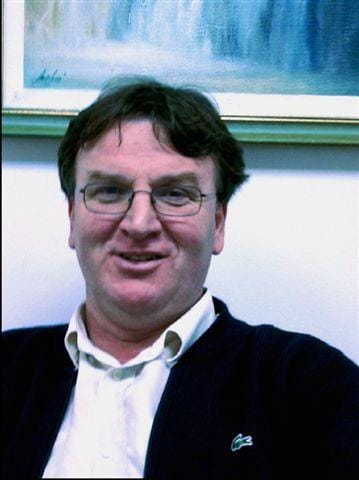
The central figure in the story is the on-and-off again director Ištvanić. His relationship with Matijaš goes back to 1992 and the fall of Jajce in the war. At the time, Ištvanić was serving as the director of Elektrobosna. Matijaš told CIN he helped Ištvanić and his former wife Mevlija settle down in Split when Elektrobosna’s wartime management moved there following the Serb occupation of Jajce.
Matijaš also allowed Ištvanić to use a portion of the premises of his Benson Holdings firm for TSI, a trading company registered in Ištvanić’s name. TSI became a foreign partner with Energoinvest and created a subsidiary called Metalinvest, using a sheet metal facility formerly owned by Energoinvest. Metalinvest still employs 60 people in Jajce, but owes the municipality about 100,000 KM in unpaid utility bills.
By 1995, Ištvanić was back in Jajce, serving as the head of the Jajce Municipality Economics Department. He was already planning his next role at Elektrobosna. He contacted Škrbić, a former Elektrobosna sales manager, and asked for help.
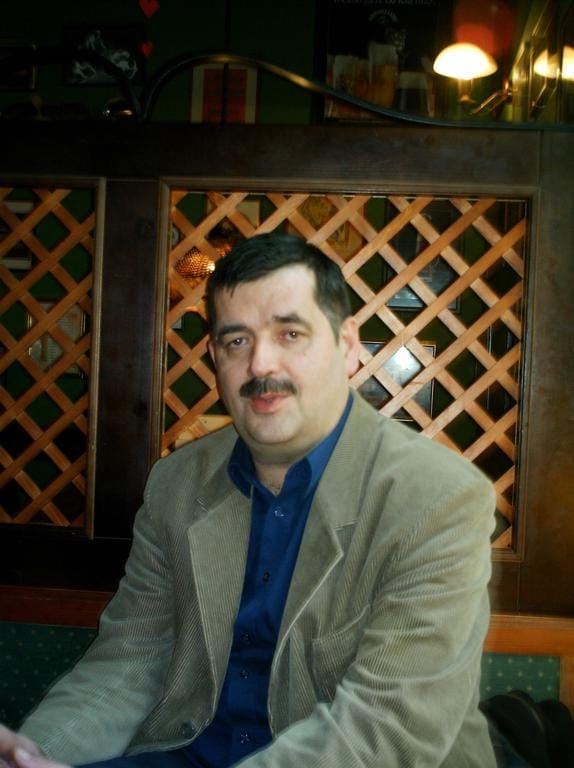
“We got in touch in 1996. Ištvanić asked me to bring back the pre-war clients. That was supposed to be my stake in this business,” said Škrbić, who at that point did not take a job with Elektrobosna.
Ištvanić took control of Elektrobosna again early in 1997. “The restart of production was my dream,” said Ištvanić in a telephone interview with the Center for Investigative Reporting in Sarajevo. “All I have done was right and for the worker’s benefit.”
At the time, the company was in bad shape and new investors were needed to get the furnaces restarted. Approximately 1 million KM was needed for repairs to Furnace 5. The Elektrobosna board of directors issued a call for tenders in search of a foreign partner.
In 1997, the board said it had found their investors and proudly introduced new foreign partners. However, their version of events does not make sense. One company, New East, sent its letter of intent five months after the announcement of the tender. New East is a series of holding companies whose ownership disappears in a Caribbean trust. The official director of New East in London told CIN she didn’t know who owned the company and referred reporters to Matijaš.
Another foreign partner was Pre Pen. According to records obtained by CIN from the Financial Police, the Elbokomerc subsidiary of Elektrobosna was the result of an agreement between Ištvanić and Pre Pen owner Branko Jakesevic, who was also on the Elektrobosna board of directors at the time. CIN has obtained a Financial Police complaint that states this deal was a conflict of interest for Jakesevic. The complaint was forwarded to the Jajce Prosecutors Office.
According to the Financial Police, Gumiplast Zaks and Elektrobosna signed a contract to start Elektrobosna Zaks in December of 1997. However, Gumiplast Zaks was not incorporated until May of 1998.
Mačak, former Elektrobosna director general Ivo Džidara, and Edvard Sklenar, former president of Jajce unions, all agree that almost all of Elektrobosna’s assets went into the three new subsidiary companies.
“Matijaš played the main role by bringing in … New East from London,” said Mačak.
Franjo Ćosić, the director of Elbokomerc and a former big shareholder of Elektrobosna, rejects the notion that New East is owned by foreigners. “Ištvanić, Matijaš and Škrbić are the men behind that company. They are the genuine owners of the company,” said Ćosić.
Records obtained by CIN show that New East Limited invested around 5 million KM into Elektrobosna-N. This money gave New East 30 percent of the company’s stock. New East made no more investments after 2001. Nevertheless, the value of its investment eventually rose to 21 million KM – a figure certified by the FBiH Ministry of Commerce and BiH Ministry of Commerce and Economic Relations — while its stock ownership share jumped from 30 to 60 percent.
Ištvanić left Elektrobosna in October, 2002, to serve a four-month stint as a BiH deputy minister of Commerce and Economic Relations. It was during his stay there that New East received certification from that ministry for its increased stock value. Ištvanić later returned to his job as Elektrobosna’s director general.
“Ištvanić’s presence in the ministry was necessary to get the ministry to issue the certificates (stating that New East had met its fiscal commitments) to the extent of 21 million marks. The certificate recognized New East’s stock in EB-N to the tune of 60 percent, even though that money was never paid up,” said Mačak.
The financial police reports also allege that the registration of New East’s original capitalization was carried out in an illegal manner in the Cantonal court in Travnik.
In 2001, the parent company Elektrobosna was to be privatized. Škrbić, Matijaš and Ćosić began buying shares.
At the same time, Mačak, a Jajce native who was running a construction business in Germany, saw an opportunity to make money in his hometown. He also began quietly buying certificates through Sarajevo lawyer Nada Filipović which would later be converted into shares.
“I bought certificates out of my savings. I have paid between 400,000 and 600,000 KM for my stock in Elektrobosna,” said Mačak, who says his motivation now is simply to save the company and his investment.
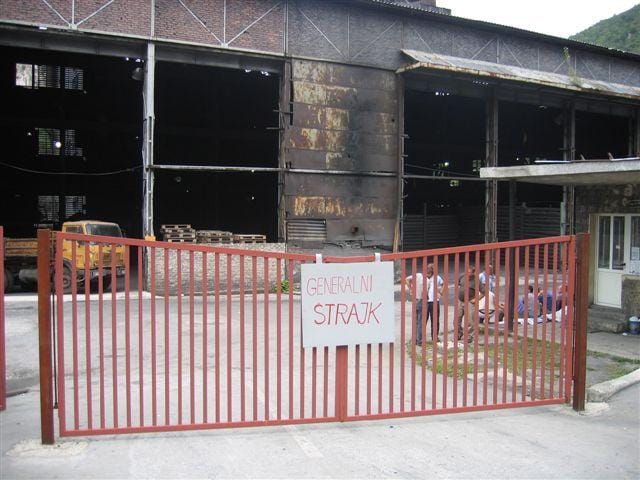
Before 2001, Elektrobosna was operating like a normal company, say Ćosić and others. But before privatization occurred, problems started to develop. According to Mačak, the goal of the management was to bankrupt the company. Elektrobosna stopped paying its utility bills and fell behind in its required payments for worker health benefits. Work became sporadic, and workers went on strike over the wages they were missing.
Suddenly, EB looked like a bad investment.
“Whether that was done intentionally or by accident, a negative media image was created, so maybe this is why ordinary people refused to buy up Elektrobosna shares, ” said Nikola Grubešić, former director of the Srednjobosanski Canton Privatization Agency.
The company’s troubles drove away other investors from Italy, Austria and Germany say Grubešić. “There are probably several reasons (they didn’t bid), but I think the biggest of all was Elektrobosna’s negative image,” Grubešić said.
After the privatization process was stopped, Matijaš and Škrbić ended up with a majority of shares. But Mačak held a strong minority percentage, which he said was enough to foil Matijaš and Škrbić’s plans.
The financial police started looking at the company in 2002 after complaints by Mačak and other sources. They found there were grounds to press charges, although charges have yet to be filed.
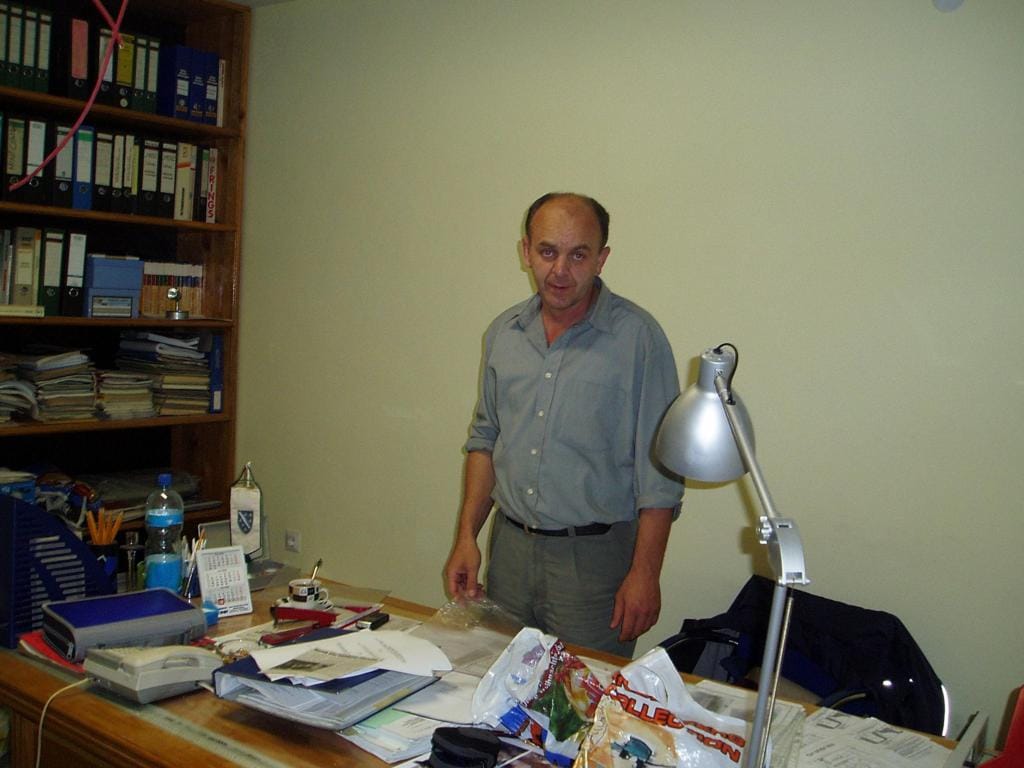
Ultimately, the acquisition of shares left only three major players, Matijaš, Škrbić and Mačak. According to Mačak, he controls 29 percent of the shares, Matijaš controls 29 percent and Škrbić controls 31 percent. The trio make up the company’s supervisory board. Ćosić said he exchanged his shares in Elektrobosna with Matijaš but alleges he was never paid and has sued Matijaš for their return.
Three months ago, Mačak called Škrbić and asked his long-time adversary to switch sides, to leave Matijaš and try to save the company together. Škrbić agreed.
‘I’m financially motivated to work with Elektrobosna and I’m only trying to play for my team,” Škrbić said of his switch.
Back in Jajce, Škrbić called a meeting of the three-man supervisory board in February. Matijaš, fearing arrest, did not come to Jajce and was represented by Branko Vučković, a former Elektrobosna-N executive. Mačak and Škrbić now used their new alliance to outvote Matijaš.
Škrbić admitted that Bosnian police had interviewed him in Celje, with Slovenian police in attendance.
“Police didn’t interview me on my role in Elektrobosna. The interview had to do with some disagreements with Matijaš,” said Škrbić. He said he forwarded all financial records for Elektrobosna to Bosnian police investigators. Škrbić has said he is willing to testify in a trial against former Elektrobosna officials, but said no plea bargain had been made.
With possible lawsuits ahead and creditors knocking at the door, exactly what Mačak and Škrbić have won is not clear.
And nine years after the 100th anniversary celebration, today everyone says they are poorer. The workers say hundreds of jobs were lost (the company once employed 3,000) and Jajce is still without a major source of revenue.



